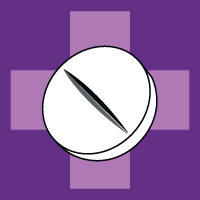Topic Menu
► Topic MenuTopic Editors

2. Center for Health Technology Assessment and Pharmacoeconomic Research, University of Pecs, 7624 Pecs, Hungary

Drug Utilization and Medication Adherence: Strategies, Technologies and Practices
Topic Information
Dear Colleagues,
Medication non-adherence in chronic diseases averages only 50%, causing a major clinical and economic burden. Multiple technologies and interventions have been developed to enhance adherence; newertheless, to date, very few of these have been implemented in routine care. In relation to this, there is an evidence gap on the health technology assessment (HTA) and reimbursement of adherence-enhacing technologies and interventions. Additionally, in current clinical practice, healthcare providers are short of knowledge on how to monitor adherence and apply the appropriate interventions, and patients are insufficiently empowered to self-monitor, self-manage, and optimize their drug use.
This Topic aims to collect original research articles and reviews that bring new insights into research and development on drug utilization and medication adherence. Research areas may include (but not be limited to) the following: adherence monitoring and measurement, drug utilization, influencing factors of non-adherence, medication adherence technologies, adherence enhancing interventions, and HTA and health policy aspects of medication adherence.
We look forward to receiving your contributions.
Dr. Tamás Ágh
Prof. Dr. Enrica Menditto
Topic Editors
Keywords
- medication adherence
- medication persistence
- medication adherence enhancing interventions
- e-health
- cost-effectiveness analysis
- health technology assessment
- reimbursement
- health policy
- quality of healthcare
- drug utilization
- polypharmacy
- multimorbidity
- real-world evidence
- systematic literature review
- meta-analysis
Participating Journals
| Journal Name | Impact Factor | CiteScore | Launched Year | First Decision (median) | APC |
|---|---|---|---|---|---|

Healthcare
|
2.8 | 2.7 | 2013 | 19.5 Days | CHF 2700 |

Journal of Personalized Medicine
|
3.4 | 2.6 | 2011 | 17.8 Days | CHF 2600 |

Medicines
|
- | - | 2014 | 32.6 Days | CHF 1400 |

Pharmacy
|
2.2 | - | 2013 | 24.6 Days | CHF 1800 |

Pharmaceutics
|
5.4 | 6.9 | 2009 | 14.2 Days | CHF 2900 |

Pharmaceuticals
|
4.6 | 4.7 | 2004 | 14.6 Days | CHF 2900 |

MDPI Topics is cooperating with Preprints.org and has built a direct connection between MDPI journals and Preprints.org. Authors are encouraged to enjoy the benefits by posting a preprint at Preprints.org prior to publication:
- Immediately share your ideas ahead of publication and establish your research priority;
- Protect your idea from being stolen with this time-stamped preprint article;
- Enhance the exposure and impact of your research;
- Receive feedback from your peers in advance;
- Have it indexed in Web of Science (Preprint Citation Index), Google Scholar, Crossref, SHARE, PrePubMed, Scilit and Europe PMC.

